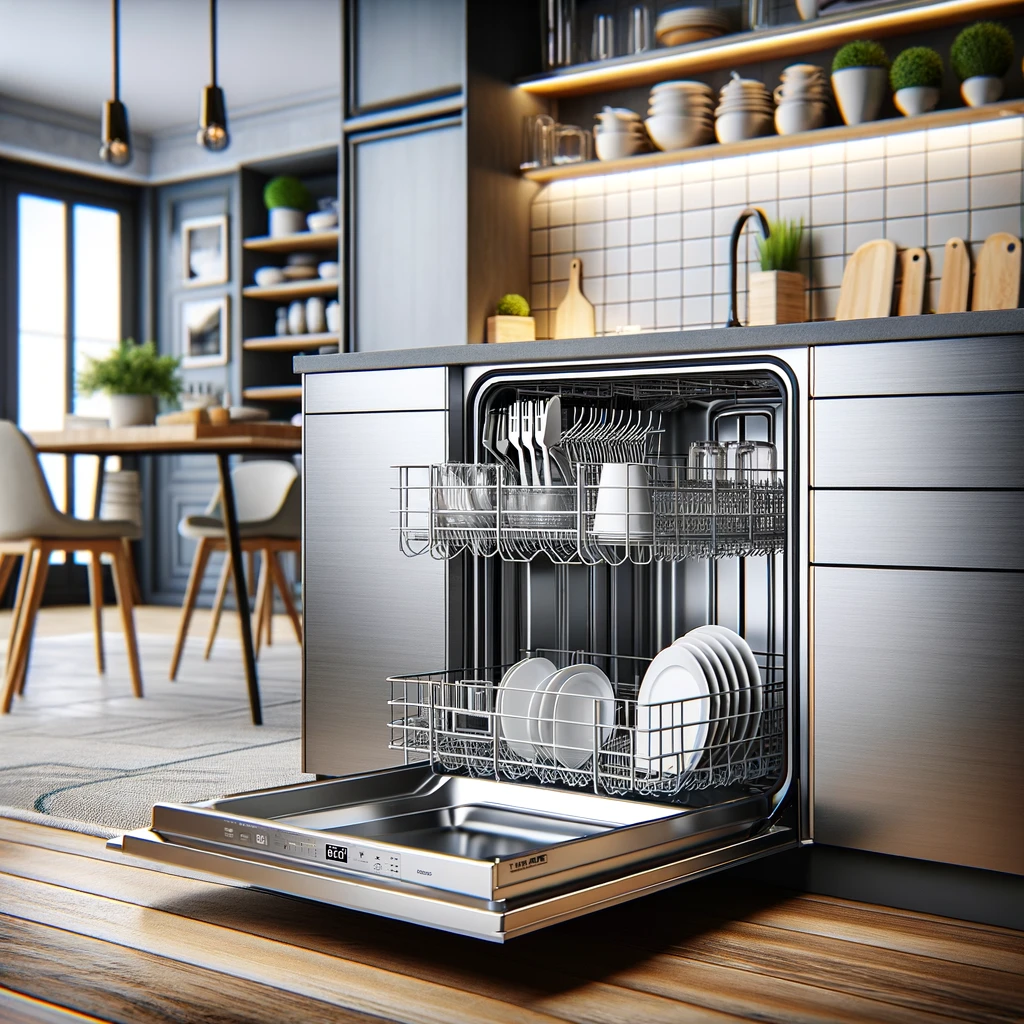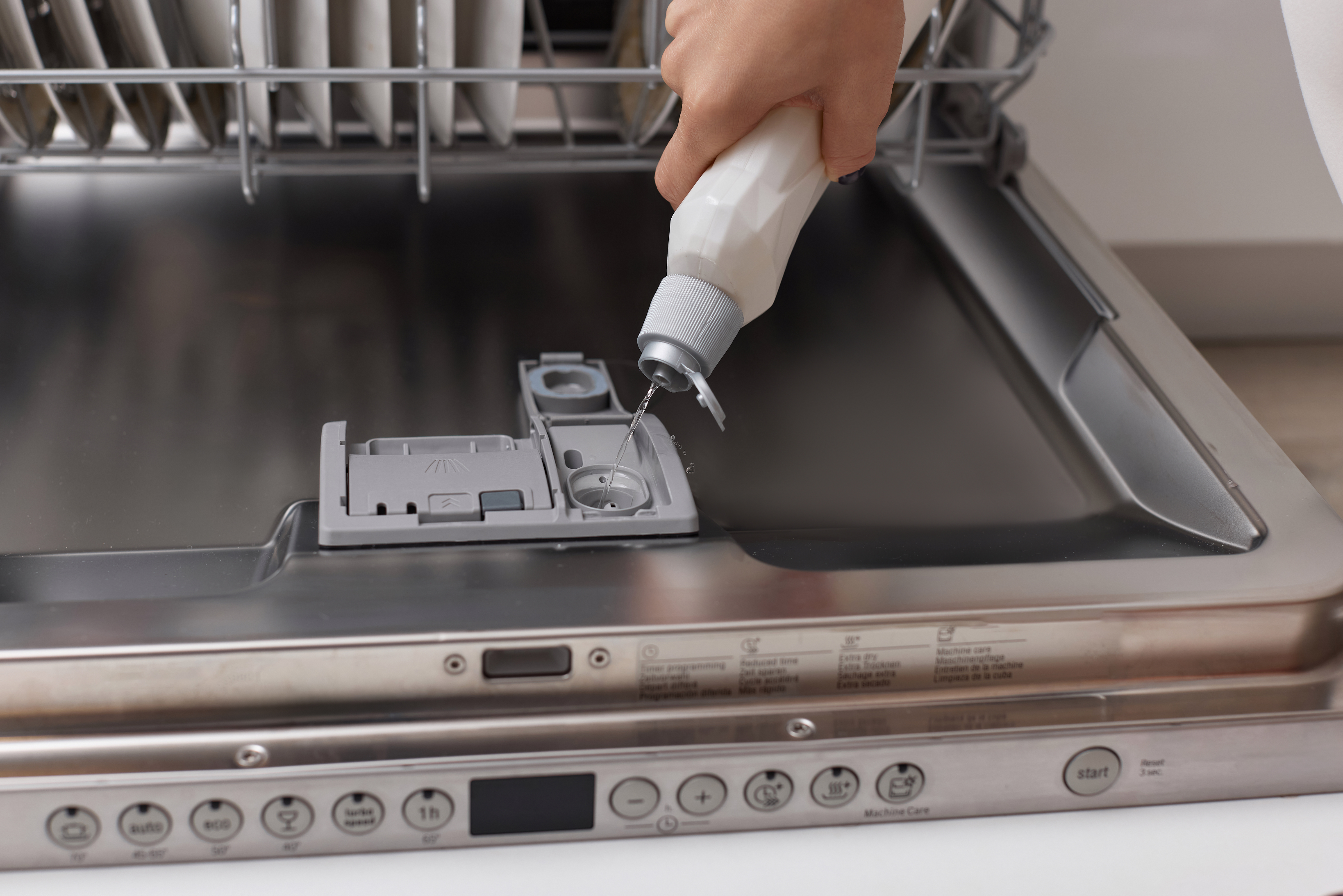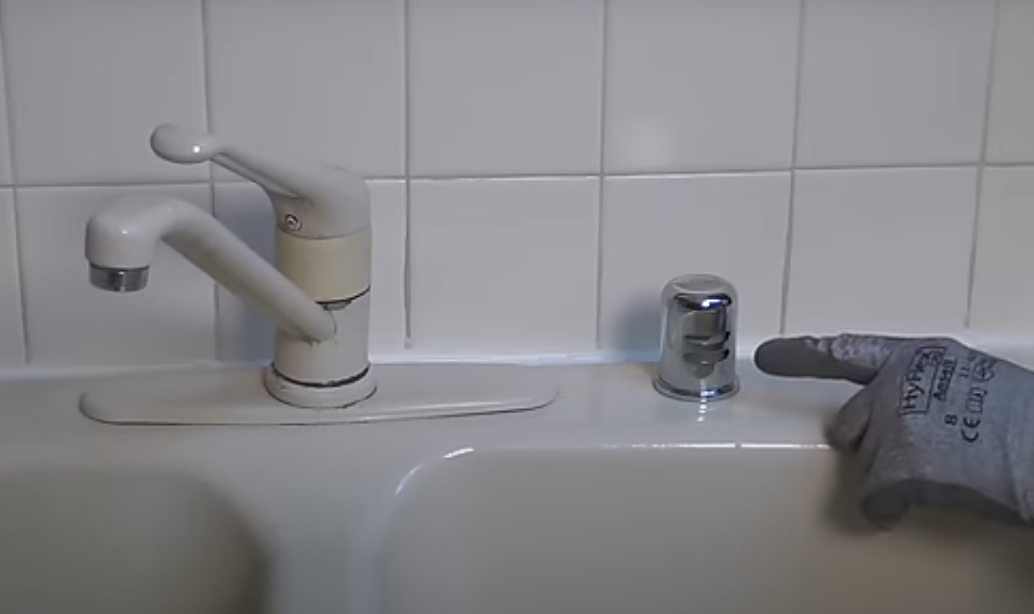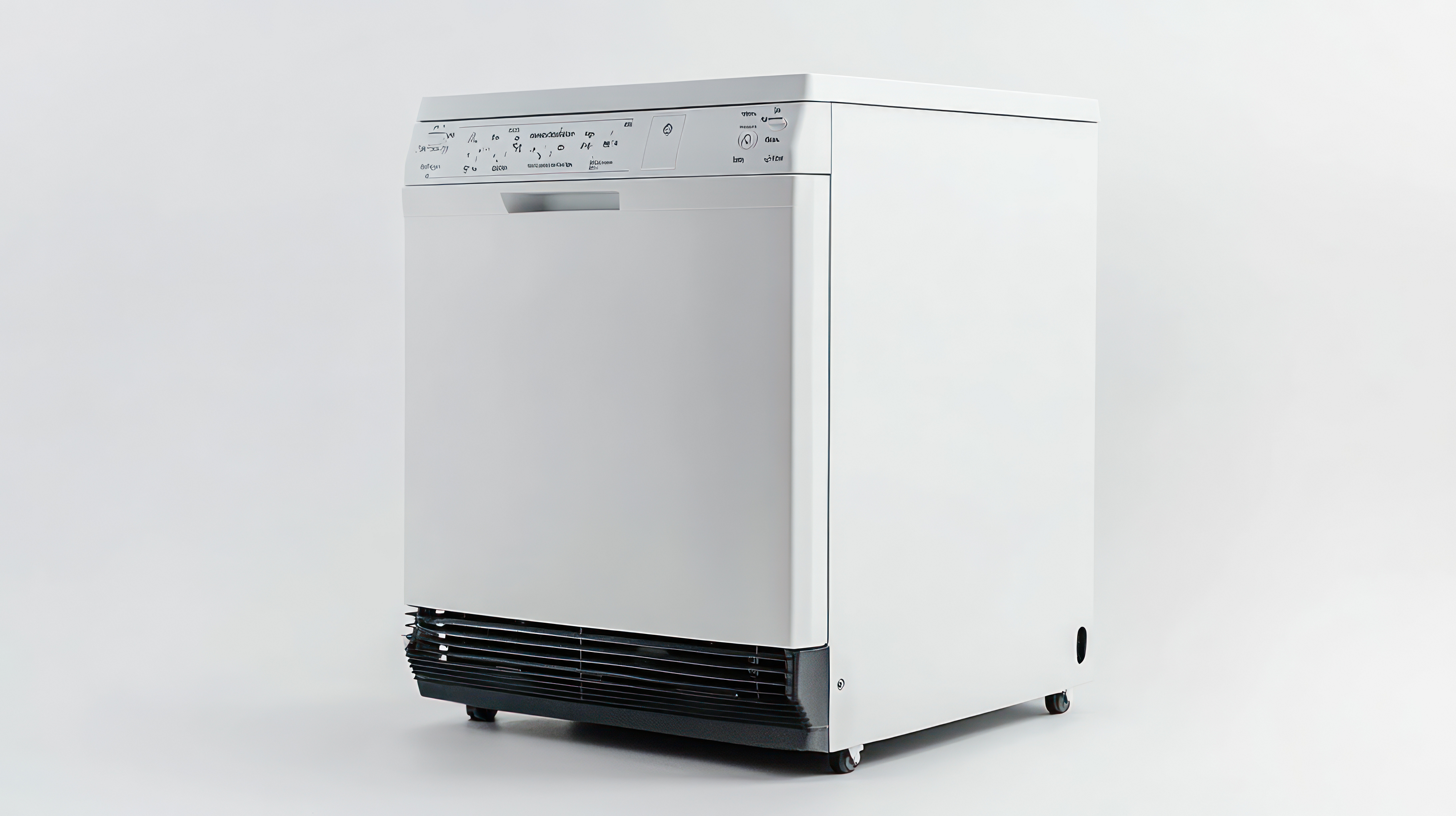Table of Contents
Is It Worth Fixing a Dishwasher?
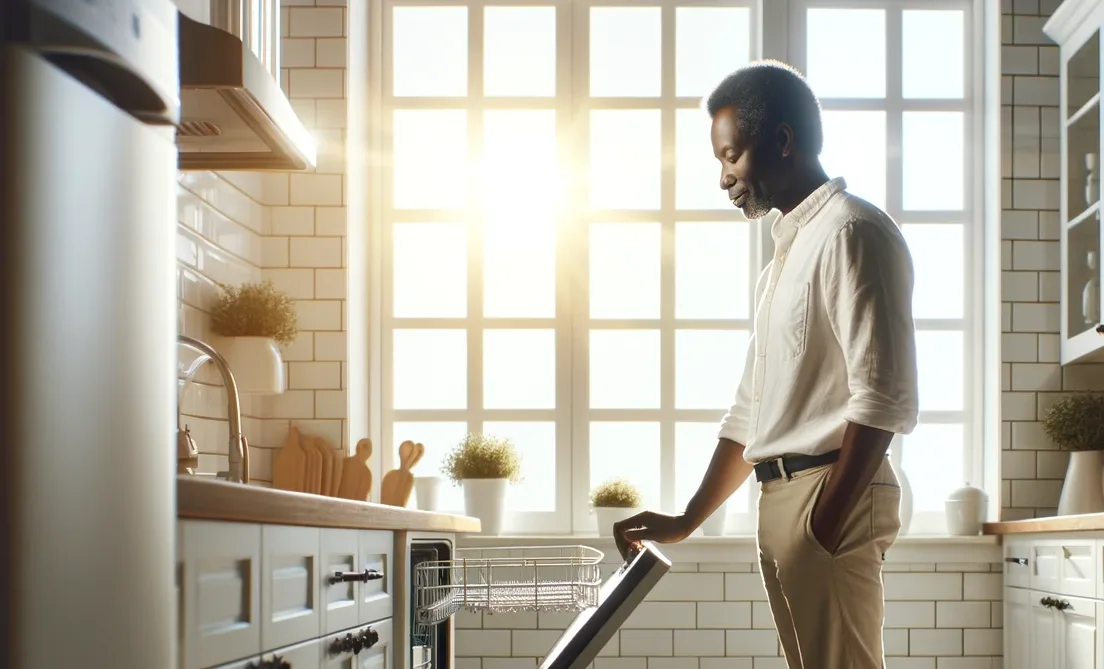
When your dishwasher starts acting up, you may find yourself at a crossroads: should you repair it or replace it?
The decision hinges on factors like the appliance's age, condition, and repair costs.
This guide will help you weigh these considerations, identify signs that your dishwasher needs repairs, understand the benefits of fixing it, determine when replacement makes sense, and compare the costs of both options.
KEY TAKEAWAYS
- Dishwashers generally last 10-15 years. If a repair costs 50% or more of the price of a new dishwasher, especially for an older model, replacement is often the better option. Minor repairs on newer dishwashers, however, are typically worth the investment.
- Simple issues like clogged filters or faulty latches are often easy and inexpensive to fix, even as DIY projects. However, significant problems such as pump failures or electronic control board malfunctions may require professional intervention and could justify replacement if costly.
- Repairing a dishwasher can save money, preserve your kitchen's aesthetic, reduce electronic waste, and avoid the hassle of installation. Conversely, frequent breakdowns, outdated technology, or energy inefficiency may signal that replacing the appliance is a more practical long-term solution.
Factors to Consider When Deciding Whether it is Worth it to Fix a Dishwasher
Several factors can help you decide whether fixing your dishwasher is the best move. Here's what to keep in mind:
- Age of the dishwasher: Dishwashers typically last about 10-15 years. If yours is approaching the end of its lifespan, replacing it might be more cost-effective than paying for ongoing repairs because older dishwashers are more prone to frequent breakdowns.
- Extent of the problem: Minor issues, like a clogged spray arm or a faulty latch, are usually inexpensive to fix. You can often fix these types of problems on your own. But significant problems, such as motor or pump failures, might mean the cost of repairs exceeds the value of the dishwasher. Lean toward replacing the dishwasher if it’s older than 7 years and is facing a major repair.
- Cost of repairs: Get a repair estimate from a trusted professional. Compare this with the dishwasher replacement cost to make an informed decision. Follow this general guideline: if the repair costs are expected to be 50% or more of the price of a new dishwasher, replace your current dishwasher. For instance, if a new dishwasher costs $800 (including installation and haul-away costs) and the repair estimate is $400 or more, you’ll be better off buying a new dishwasher.
- Long-term reliability: Consider your dishwasher's past performance. If it's been reliable with minimal issues, it might be worth repairing. However, frequent breakdowns could indicate it's time for a replacement.
- Energy efficiency: Newer, energy-efficient models can save on utility bills and reduce your environmental footprint. Energy Star-certified dishwashers, for example, use 30% less water and 12% less energy than non-certified models. If your current dishwasher is outdated and inefficient, upgrading might be the better choice.
Evaluating these factors will help you decide whether repairing your dishwasher is worth it or if investing in a new one makes more sense.
Common Dishwasher Issues and Their Implications Regarding Repair vs. Replacement
Is your dishwasher acting up? Here are common dishwasher failures and how they affect your repair/replace decision.
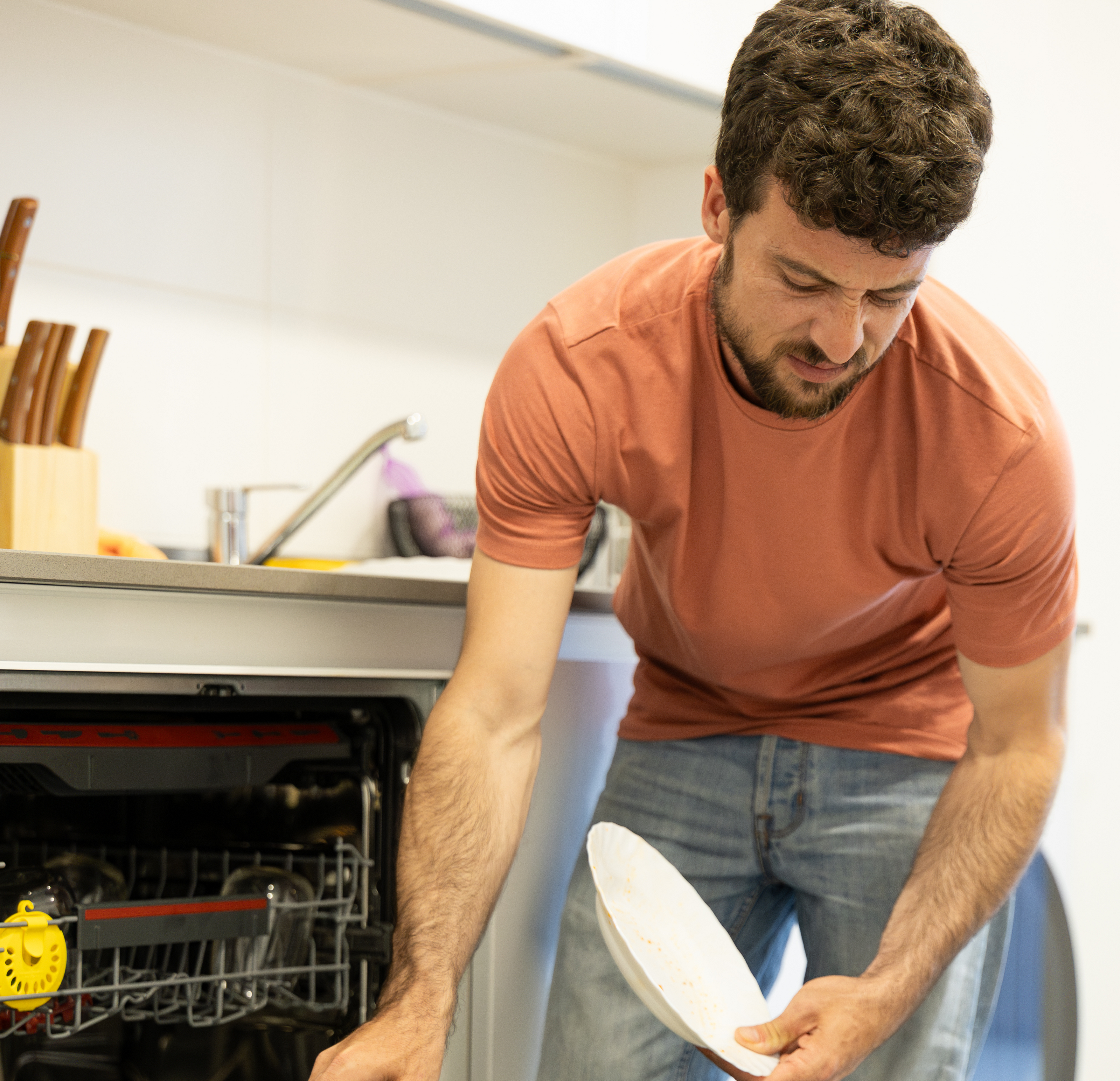
Poor Dishwasher Cleaning Results
If dishes remain dirty or have residue after a cycle, it could indicate issues with the spray arms, filters, or other components. While some problems are fixable, persistent poor performance may warrant replacement.
To learn more about what causes poor dishwasher cleaning results and how to fix common causes of poor cleaning, view this helpful YouTube video:
As shown in the video, causes as simple as improper loading, choosing the wrong cycle, clogged filters, problems with spray arms, low water temperature or not using rinse aid could cause cleaning issues. These are problems that you can typically fix easily on your own.
When you can fix these types of simple causes for cleaning issues on your own, the question of whether it is worth it to fix your dishwasher is easy to answer. Fixing the dishwasher on you own instead of replacing the dishwasher makes common sense in this scenario.
More complicated or complex problems such as low water fill or failure of the circulation pump that you’re unable to diagnose and repair on your own may cause you to think twice about keeping your dishwasher. If you’re obviously facing a major, expensive repair when dishes aren’t getting clean, consider replacing your dishwasher if it’s older than 7 years and the repair will likely cost more than ½ the price of buying and installing a new dishwasher.
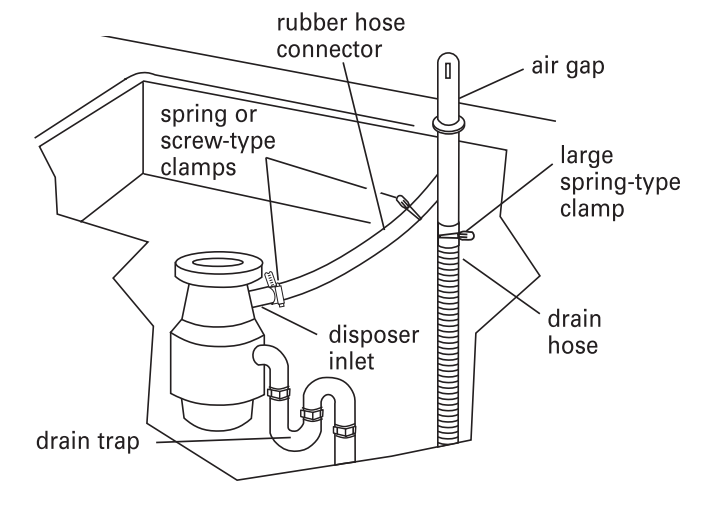
Dishwasher Not Draining
It’s easy to notice a tub full of water in the bottom of the dishwasher when unloading dishes after the cycle ends. Sometimes, resolving a draining problem can be almost as easy.
Easy fixes for a dishwasher not draining includes simple troubleshooting steps such as activating the garbage disposal to clear the kitchen sink drain path or clearing a clog in the kitchen sink air gap.
When these simple fixes don’t work, you can often fix a drain problem in your dishwasher using the systematic approach described in this DIY video:
If you’re able to resolve the dishwasher drain failure on your own, then it’s obviously worth keeping your dishwasher instead of replacing it.
If a more complicated problem such as a failed drain pump or defective electronic control board is preventing the dishwasher from draining, then you’ll need to consider replacing it if your dishwasher is older than 7 years and the repair will cost more than ½ the price of installing a new dishwasher.
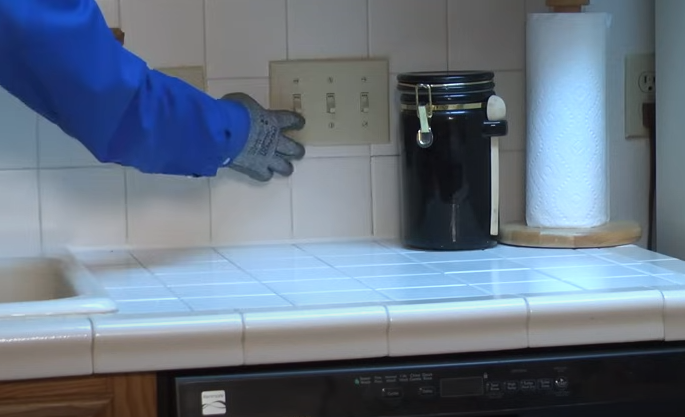
Dishwasher Has No Power
Many of our Sears Home Services technicians are called out to homes to fix a problem with the dishwasher having no power when the solution to the problem is simply flipping the light switch beside the sink that controls power to the dishwasher.
That solution and other practical troubleshooting tactics are described in this popular YouTube video:
Following the systematic troubleshooting approach in that video will likely help you find the cause of the power failure in the dishwasher so you can decide whether to repair or replace the appliance.
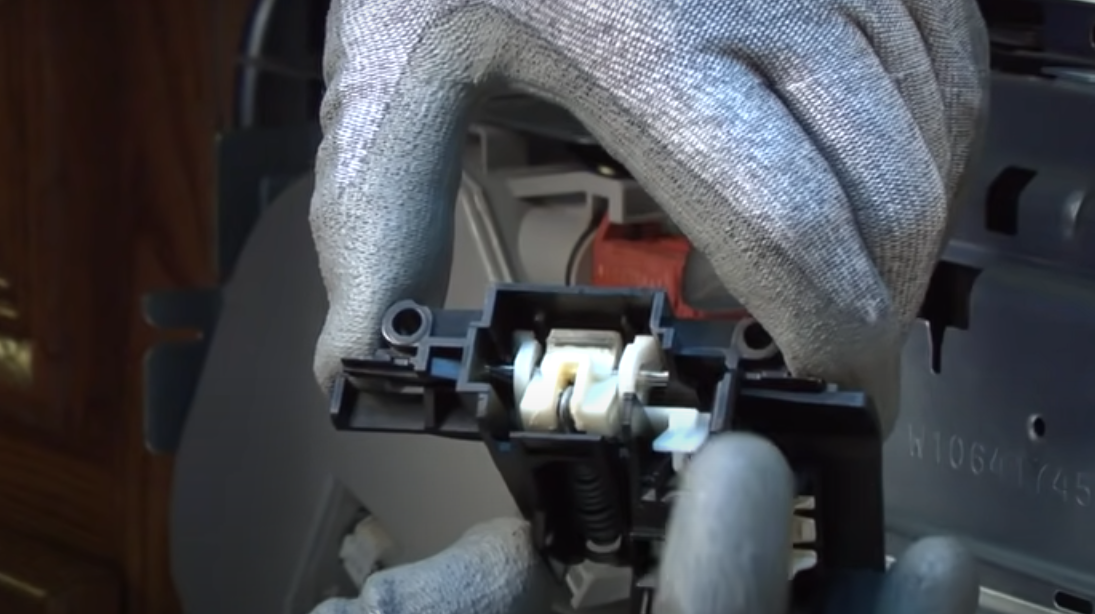
Dishwasher Won’t Start
Starting problems are often caused by a failed door switch, which is an inexpensive part that is relatively simple to replace on many dishwashers. In fact, the door switch is the most frequently replaced parts on a dishwasher because it’s constantly used to open the door for loading and unloading dishes.
Other problems can also prevent the dishwasher from starting. Of course, we have a video to walk you through troubleshooting for this problem. Follow the steps in this YouTube guide to find the cause of a starting problem in your dishwasher:
When something basic and simple like a failed door switch is preventing your dishwasher from starting, repairing the appliance rather than replacing it makes sense.
When a more complicated and expensive failure such as a bad electronic control board or defective control panel is apparent, you’ll need to decide whether the more-expensive repair is worth it. Sometimes, replacing the dishwasher will make more sense.
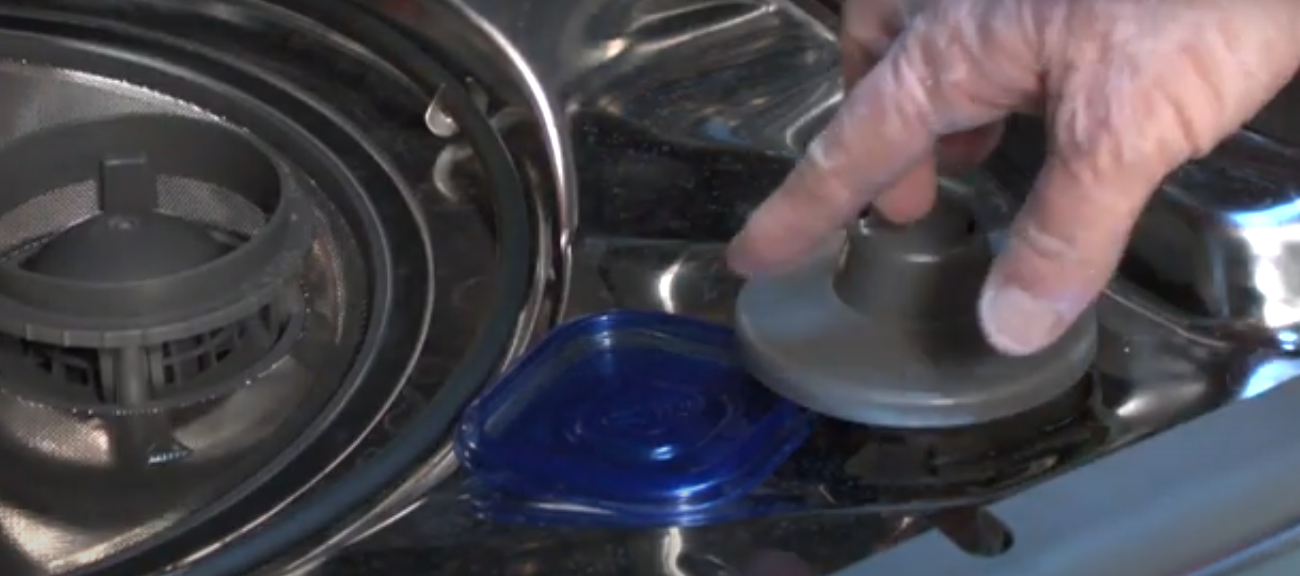
Dishwasher Not Filling
A problem as simple as an item being caught underneath the float switch in the dishwasher tub can prevent your dishwasher from filling. The dishwasher also won’t fill if the door switch is bad. More expensive failures include problems with the fill valve or the electronic control board.
Take the systematic approach to diagnose the cause of the fill failure described in this popular YouTube video:
When the fill failure is caused by something simple that you can fix yourself or that won’t cost that much for a technician to fix, it’s certainly worth fixing the dishwasher rather than replacing it.
When you’re facing a major repair such as replacing the electronic control board, you’ll need to consider replacing the dishwasher.
Loud or Unusual Dishwasher Noises
Dishwashers should run quietly. Loud or unusual noises like grinding, banging, or rattling typically indicate mechanical issues needing attention.
If you’re able to find and fix the noise on your own, the cost of resolving the problem will typically be minimal unless circulation pump replacement is the cause of the noise. Pump replacement can be expensive and it’s often not a repair that you can complete on your own because it involves handling crucial water seals that must be installed or reinstalled properly.
When the dishwasher needs a new circulation pump because the motor or pump is worn or damaged, you’ll likely need to replace the dishwasher rather than repairing it.
If you can find a minor problem causing the noise and fix this issue on your own, you won’t need to replace the dishwasher unless noises and problems begin to occur frequently.
Dishwasher Error Codes or Flashing Lights
Modern dishwashers often display error codes or flashing lights to indicate issues.
Consult the user manual or the tech sheet for your dishwasher to determine the cause of an error code or flashing lights. You can also look up the error code and get DIY troubleshooting advice for fixing the problem on our Dishwasher Error Code Chart.
If you’re able to fix the problem causing an error code on your own and the replacement part is relatively inexpensive, then you likely won’t need to replace the dishwasher.
If the error code points to a failure of the circulation pump motor, the control panel or the electronic control board and you’ll need a technician to make the repair, then you may need to replace dishwasher if the repair will be more than ½ the cost of installing a new dishwasher and your current dishwasher is over 7 years old.
Benefits of Repairing a Dishwasher Instead of Replacing It
When your dishwasher malfunctions, you might wonder if it's worth fixing or if you should replace it. While replacing might seem easier, repairing has several benefits:
- Cost savings compared to replacement: Repairing your dishwasher is often cheaper than buying a new one, especially for minor issues that are easy to fix.
- Preserving the existing kitchen design: Repairing your dishwasher maintains your kitchen's design and aesthetic. The replacement dishwasher may not match your other kitchen appliances. In some situations, replacing it might require modifications to cabinetry or countertops, which can be time-consuming and expensive.
- Reducing electronic waste: Fixing your dishwasher reduces electronic waste. Opting to repair rather than discard the appliance helps minimize environmental impact.
- Maintaining convenience and familiarity: Repairing allows you to continue using an appliance you're familiar with. You avoid the learning curve that comes with a new dishwasher.
- Avoiding the need for installation: Repairing eliminates the hassle of installation, which often involves disconnecting and reconnecting plumbing and electrical connections.
Repairing your dishwasher can be a cost-effective and eco-friendly choice. To ensure proper repairs, seek assistance from a professional dishwasher repair service such as Sears Home Services for efficient and reliable solutions.
When to Consider Dishwasher Replacement
If your dishwasher has issues, you might wonder if it’s time to replace it. Consider these factors:
- Frequent breakdowns and repairs: Constant breakdowns and repairs can indicate your dishwasher is nearing the end of its lifespan. Continual repairs can become costly, making replacement a more economical option.
- Outdated technology or features: Older dishwashers may lack advanced features found in newer models. Upgrading can provide better efficiency and convenience.
- Significant damage or corrosion: If your dishwasher has major damage or corrosion, it might be beyond repair. Replacement ensures optimal performance and avoids further issues.
- Lack of availability of replacement parts: As dishwashers age, finding compatible parts can become difficult. If parts are no longer available, replacing the appliance might be more practical.
- Energy efficiency concerns: Older dishwashers are less energy-efficient. Upgrading to a more efficient model can lower utility bills in the long run.
Consider these factors and discuss your concerns and situation with a professional technician who can assess your dishwasher’s condition and provide tailored advice.
You can schedule professional dishwasher maintenance and cleaning service yearly to help keep your dishwasher lasting and longer and consult with the technician performing the service when you need advice about dishwasher replacement.
Making the Decision
Assessing whether to repair or replace your dishwasher depends on a combination of its age, repair costs, frequency of issues, energy efficiency, and performance.
By carefully evaluating these factors, you can make a decision that balances functionality, convenience, and cost-effectiveness, ensuring your kitchen remains efficient and your dishes sparkling clean.
Frequently Asked Questions
What is the most common part to fail on a dishwasher?
The door latch is the most common part the fails on a dishwasher. This part can wear out from constant use as you use it to open the door twice for every dishwasher load (loading and unloading). The door latch assembly is often made of plastic that isn’t as sturdy as many of the other metal parts in the dishwasher. The micro-switch in the door latch has small electrical contacts and connections that can fail at any time. Although this part is generally sturdy in most dishwasher, it’s the one that happens to fail the most.
Is it cheaper to fix a dishwasher or replace it?
It’s often cheaper to fix a dishwasher rather than replacing it. Dishwasher repairs typically range from $150 to $300, depending on the issue's complexity. Common repairs such as replacing the door latch, replacing a door hinge spring and replacing a water inlet valve fall into this price range. In contrast, a new dishwasher can cost between $400 and $1,500, based on brand, features, and capacity. Add in the cost of installation and you’ll find that replacing a dishwasher is almost always more expensive than paying for a repair.
Are dishwashers easy to fix?
Many common dishwasher problems are easy to fix. With the right technical advice (often from popular YouTube videos with success noted in viewer comments) you can tackle many dishwasher repairs on your own. To know the right part to replace, you’ll also need proven and safe technical advice. Look for popular dishwasher diagnostic videos with viewer testimonials of success to help you figure out what’s wrong when you experience a particular dishwasher symptom. With some credible and accurate advice from trusted and experienced sources, you can fix just about any basic dishwasher failure.
Why do dishwashers not last long?
Dishwashers are constantly exposed to water, heat and mechanical stress as they spray dishes with hot water and detergent. Corrosion and stress often take their toll on dishwashers faster than other kitchen appliances such as the refrigerator or stove.
Schedule your dishwasher repair now!
With extensive experience, our technicians are skilled in repairing dishwashers of all makes and models, ensuring sparkling clean dishes with every cycle.
Was this information helpful?
Repair Dishwasher Resources
Learn what causes poor dishwasher cleaning results and find out how to get dishes cleaned spotlessly in the dishwasher.
Learn how a rinse aid dispenser works in a dishwasher and how to troubleshoot problems.
Learn how an air gap works in the drain system of a dishwasher.
Learn how a portable dishwasher works.
Glossary Terms
Hard water is water that contains high levels of dissolved minerals, particularly calcium and magnesium. It contrasts with soft water, which has lower concentrations of these minerals.
A ductless range hood, also known as a recirculating hood, filters and recirculates air in the kitchen, removing smoke, heat, and cooking odors without venting outdoors.
A freezer compressor is a vital component of a freezer's refrigeration system, functioning as a pump to circulate refrigerant through the system, which cools the interior by absorbing and expelling heat.
A freezer door gasket is a flexible seal that outlines the edge of the freezer door, ensuring an airtight closure to maintain cold temperatures inside and prevent warm air from entering.
Common Repair Dishwasher Symptoms
The most common reasons your Whirlpool dishwasher won't wash are a faulty pump and motor assembly, defective electronic control board or a clogged spray arm.
The most common reasons your Whirlpool dishwasher won't start cycle are a defective electronic control board, damaged power supply board or a failed door switch.
The most common reasons your Whirlpool dishwasher won't drain are a failed drain pump, faulty pump and motor assembly or a cracked drain hose.
The most common reasons your Whirlpool dishwasher will not spray water are a faulty circulation pump, a clogged spray arm, or a defective electronic control board.
The most common reasons your Whirlpool dishwasher is not working are a defective electronic control board, damaged user interface control or a stripped wire connector.
The most common reasons your Whirlpool dishwasher is not washing are a faulty pump and motor assembly, defective electronic control board or a clogged spray arm.
